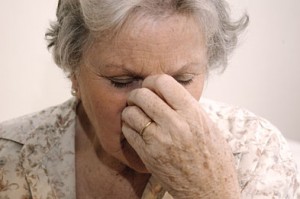
More evidence that low-calorie sweeteners are bad for your health
Studies show that artificial sweeteners can raise the risk of hypertension, metabolic syndrome, type 2 diabetes and heart disease, including stroke.

Natural Health News — Two recent studies have shown that vitamin D may be a vital component for maintaining brain health of women as they age.
The studies appear in the Journals of Gerontology Series A: Biological Sciences and Medical Sciences suggest that adequate vitamin D could dramatically lower the risk of memory loss, cognitive decline and Alzheimer’s dementia.
We all develop some degree of decline in cognitive capacity as we age. Normal physiological changes in our bodies can lead to a number of symptoms associated with ageing such as forgetfulness, decreased ability to maintain focus, and decreased problem solving capability. If left unchecked, symptoms can progress to more serious conditions, such as depression, mild dementia, or even Alzheimer’s disease.
Cognitive decline does not affect all individuals in the same way or to the same degree and a variety of influences, including nutritional factors, may help explain why.
Low vitamin D and Alzheimer’s
In the first study, higher vitamin D dietary intake is associated with a lower risk of developing Alzheimer’s disease, according to a team from the Angers University Hospital in France.
The findings were based on data from 498 community-dwelling women who had participated in a study into osteoporosis and who were followed for 7 years.
While not all the women with low vitamin D intakes showed signed of cognitive decline a significant proportion (around 28%) did. The women who developed Alzheimer’s disease, say the researchers, had the lowest vitamin D intakes at the beginning of the study (an average of 50.3 micrograms per week), those with low intake (an average of 63.6 micrograms per week) showed a higher risk of other types of dementias.
A 58% higher risk
In the second study investigators at the VA Medical Center in Minneapolis found that low vitamin D levels among older women were associated with higher risk of general cognitive impairment and an overall higher risk of cognitive decline.
The 6,257 community-dwelling older women were part of a study into osteopathic fractures and had their blood vitamin D levels measured at the beginning of that trial. The women were then further tested to assess their cognitive function. The women were followed for four years.
Very low levels of vitamin D (less than 10 nanograms per milliliter of blood serum) at the beginning of the study were associated with 58% higher risk of overall cognitive impairment , and low vitamin D levels (between 10 and 20 nanograms per milliliter) with a 31% higher risk.
These reports follow an study published in the Journals of Gerontology Series A earlier this year that found that both men who don’t get enough vitamin D – either from diet, supplements, or sun exposure – may be at increased risk of developing mobility limitations and disability.

Please subscribe me to your newsletter mailing list. I have read the
privacy statement